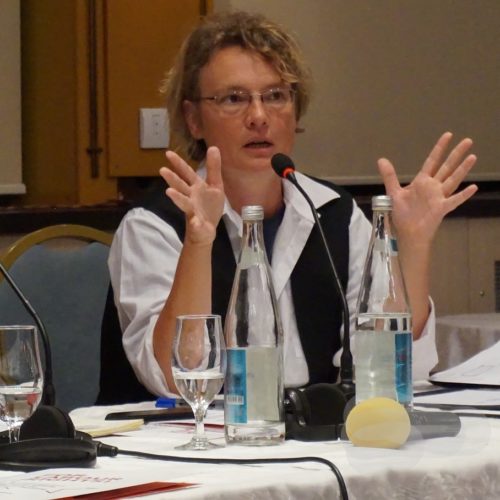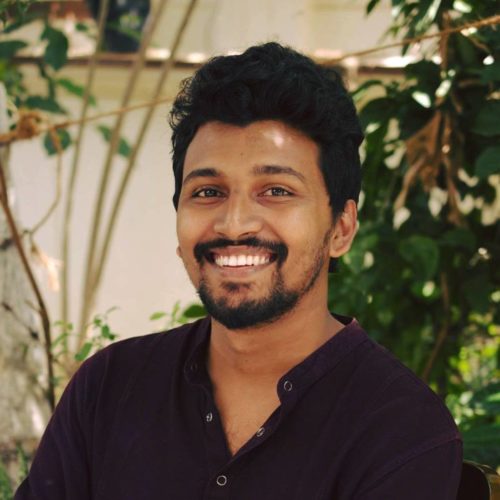Debate on Covid-19
Polanyi’s Warning:
From Covid-19 to Food Sovereignty
31st of July, 2020

Vishwas Satgar and Michelle Williams
A Polanyian perspective on nature renders visible the deleterious relationship humans have developed with nature, and thus Covid-19 and its disastrous consequences for our societies is not unexpected. In the Great Transformation Polanyi cautions against naturalizing the ‘self-regulating market’ (see Satgar and Williams, 2019). He problematizes liberal philosophy’s use of biological evolution as a model for society and which asserts that the ‘self-regulating market’ was a natural outcome of economic history. This reification of the ‘self-regulating market’ occludes centuries of embedded market-society relations based on varied degrees and combinations of reciprocity, redistribution and householding, which makes the ‘self-regulating market’ anachronistic. In addition, Polanyi cautions against reducing land (nature), labour (human activity part of life/nature) and money (a token of purchasing power) to fictitious commodities, as these non-commodities would be subsumed to market rationality, valuation and exchange. Reducing land and labour to fictitious commodities subjects both nature and humans to the limitless appetites of the market. Indeed, Polanyi warns us about the danger of turning nature into an object of destruction, which is unleashed by the marketized destruction of society and nature. In other words, the marketized destruction of nature was also about the destruction of society. Thus, Polanyi argues that the self-protection of society against the market was also integrally about protecting nature.
Yet, with finance capital in the driving seat, there has been no heeding the warning signs. Finance capital’s capture of our societies and its marketizing of social and natural relations—a process that intensified since the 1980s—produced the 2007-2009 great financial crisis. However, financialized ruling classes did not stop to reflect and redesign global economic institutions and processes. Instead, finance capital returned to the driving seat.
For the carbon-centric and financialized global food regime, this meant three things:
- First, there are more shocks on the global circuits of the globalized food system. For example, major shocks registered in different parts of the world in 2006-2008 (globally), 2009-2011 (globally), 2014-2017 (Southern and East Africa during a devastating drought), 2018 (globally due to a spike in the oil price) and in 2020 due to Covid-19. The shock to the globalized food value chains due to Covid-19 has been devastating for many countries, leading a number of countries to turn inwards to ensure the security of their food supply chains.
- Second, corporations continue with land grabs and the destruction of fragile eco-systems. A tragic example is the increasing destruction of the Amazon rain forests and the murders of indigenous activists trying to protect the fragile eco-system. Under Bolsanaro’s leadership cattle ranching, logging and illegal mining increasingly encroaches on this fragile eco-system and indigenous communities. As a result, slash and burn fires are contributing to the eco-cidal destruction of the green lung of planet earth and worsening the climate crisis.
- Third, the destruction of fragile eco-systems through corporate land grabs and expanding industrial agriculture has made our societies vulnerable to zoonotic diseases like Covid-19. Pathogens in these habitats are released as exotic animals are stolen and commodified for elite consumption in ‘wet markets’ such as in Wuhan, China. Similarly, industrial farming knowingly breeds and nurtures deadly pathogens to meet the demands of fast food diets. The more financialized, globalized, mass-consumption- and carbon-based industrial agriculture persists, the more we increase the risk of pandemics emanating from corporate controlled food systems. There is overwhelming and growing evidence in this regard.
It is time for society to swing the pendulum of history to protect itself from the ravages of the financialized and globalized market. For the food system, this means we have to start building a new food system that is ethical, just, and ecological. This means advancing food sovereignty alternatives that are based on democratic control, the science of agro-ecology, indigenous knowledge, defending the commons, solidarity economy, healthy diets, and people’s cultures. In the midst of Covid-19 this is certainly happening in South Africa as well as many other places in the world.
Reference
Satgar, Vishwas and Michelle Williams. 2019. ‘Polanyi, Nature, and the International: the Missing Dimension of Imperial Ecocide’ in Capitalism in Transformation: movements and counter-movements in the 21st Century, edited by Roland Atzmüller, Brigitte Aulenbacher, Ulrich Brand, Fabienne Décieux, Karin Fischer, Birgit Sauer. London: Edgar Elgan Press: 198-211.
Vishwas Satgar
Associate Professor of International Relations,
Principal Investigator of the Emancipatory Futures Studies in the Anthropocene Programme and Co-Founder of the South African Food Sovereignty Campaign, University of the Witwatersrand (Wits)
Johannesburg, South Africa
Michelle Williams
Professor of Sociology,
Chairperson of the Global Labour University (GLU) programme
University of the Witwatersrand (Wits)
Johannesburg, South Africa
Read the other essays on the Covid-19 pandemic here:





